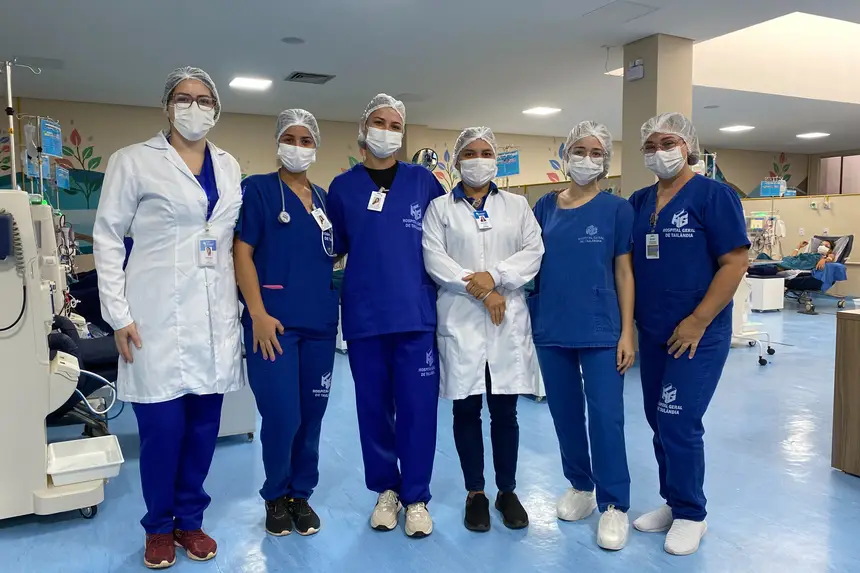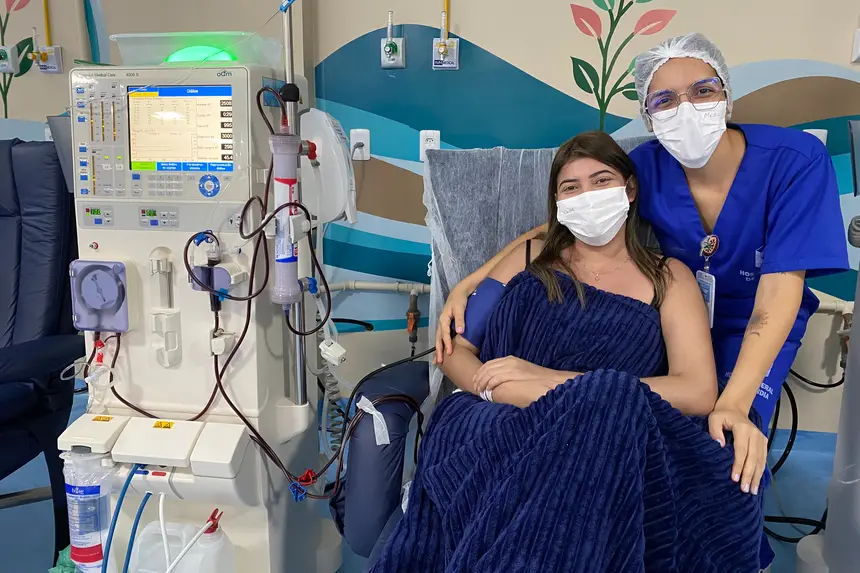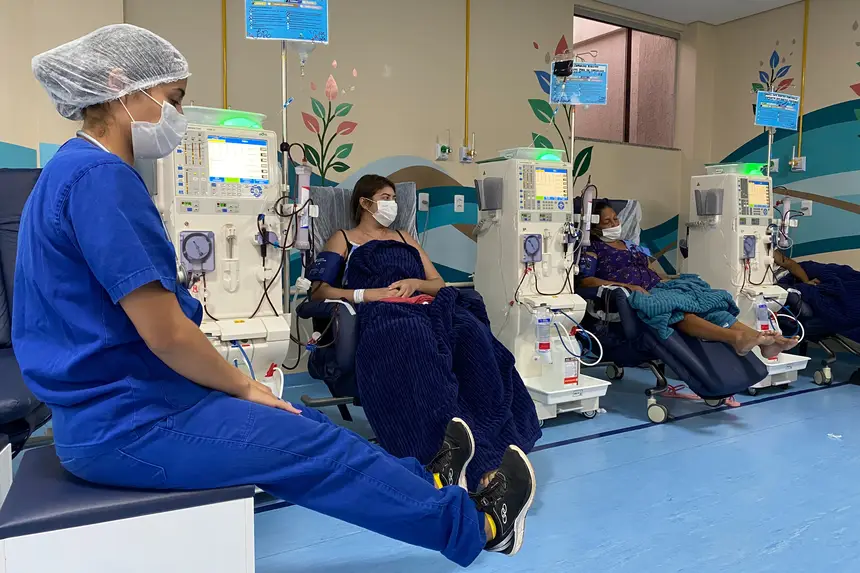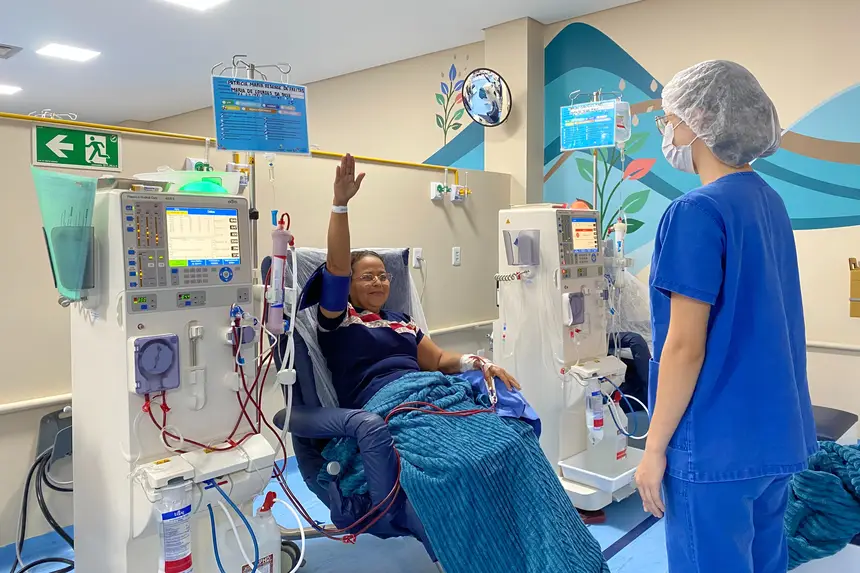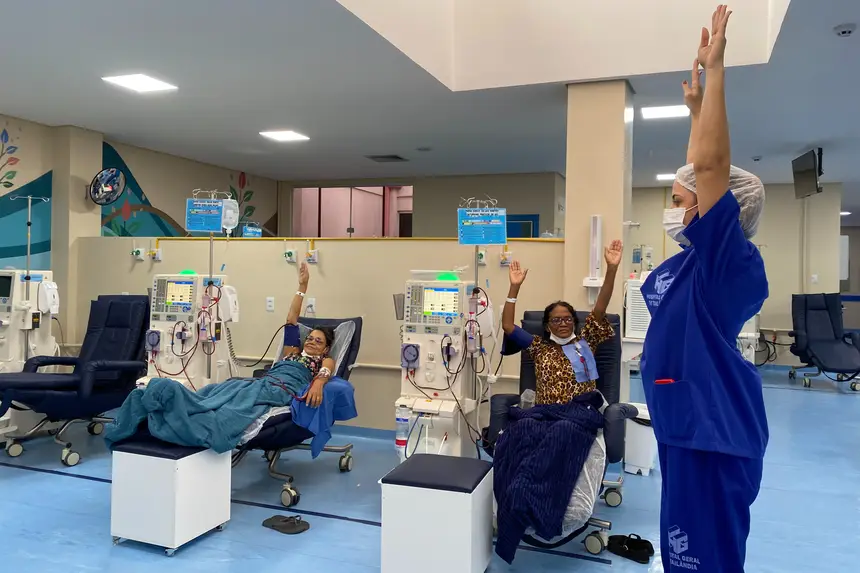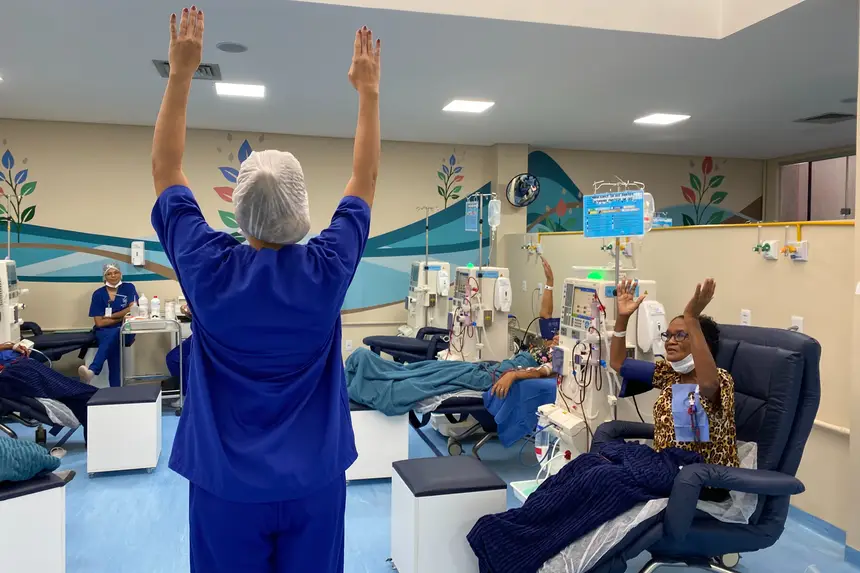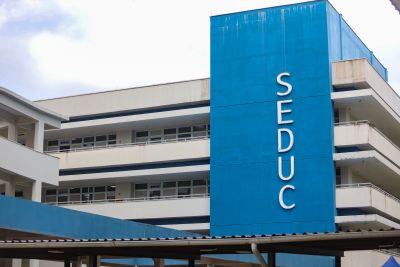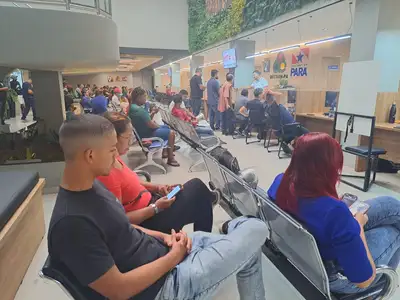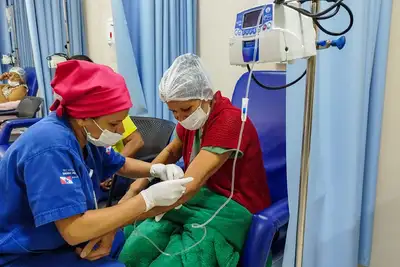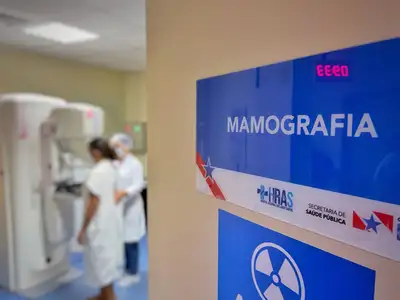HGT Hemodialysis Center launches "Caring Movement" project focused on the physical and emotional well-being of patients
As part of the commemorative actions for the 12th anniversary of the General Hospital of Tailândia (HGT) under the management of the National Institute of Social and Human Development (INDSH), in partnership with the State Department of Public Health of Pará (SESPA), the Hemodialysis Center of the unit launched this week the "Caring Movement" project. The initiative brings together professionals from physiotherapy, nutrition, and the humanization group to promote comprehensive care for patients undergoing dialysis treatment, with adapted physical activities carried out weekly during hemodialysis sessions.
The proposal arose from the observation of the challenges faced by patients who remain in a seated or lying position for long periods, a condition that can cause muscle discomfort, joint stiffness, and feelings of fatigue. Additionally, the hospital environment often becomes monotonous and generates emotional stress. Therefore, the Caring Movement combines light exercises, stretching, and adapted mobilizations, lasting 10 to 15 minutes, with awareness-raising about healthier lifestyle habits.
Physiotherapist Fernanda Cordeiro emphasizes that the project was designed to bring direct benefits to the physical and mental health of patients. According to her, muscle strengthening, combined with mobility stimulation, is an important step to improve the quality of life for those who depend on continuous treatment.
"Patients on hemodialysis face many physical limitations due to the prolonged time spent in a seated position. The practice of exercises, even if briefly and adapted, helps reduce pain, improve circulation, and prevent muscle mass loss. In addition, it provides a moment of interaction and motivation, which also makes a difference in self-esteem," explains Fernanda.
User Débora Carolina, 23, who undergoes treatment at the HGT Hemodialysis Center, commented on the importance of the initiative for those who spend several hours in session.
"I think it's a very good idea! Since we undergo this treatment, we have some limitations. We spend a lot of time sitting here. Some people have two sessions a week, others have three, so during this period, we stay still for three or four hours. Sometimes we can't take a walk or do any other exercise because there are restrictions. Therefore, this initiative of having a physiotherapist accompanying and guiding exercises that are possible and easy to perform is very important. It will be something effective for us, who have these limitations," highlighted the user.
Structure and care - Since its inauguration in December 2024, the HGT Hemodialysis Center has already performed about 2,710 sessions and currently serves 45 active patients. The team consists of 31 professionals, including nephrologists, nurses, nursing technicians, psychologists, nutritionists, social workers, and support staff.
Nutritionist Patrícia Manfredi emphasizes that the integration of physical activity and balanced nutrition enhances treatment outcomes and promotes autonomy for patients participating in the project.
"This project, Caring Movement, was born from the union of physiotherapy, nutrition, and the humanization group of our hospital unit. We realized the importance of promoting comprehensive care for patients on hemodialysis, and movement — literally — is part of that. Muscle strengthening, led by physiotherapists, is essential to improve the quality of life of these patients, who spend many hours in treatment and end up developing physical limitations," explains Patrícia.
Structure - The General Hospital of Tailândia has 51 beds and maintains an Intensive Care Unit (ICU) with nine beds, six for adults and three for pediatrics. Users who depend on the Unified Health System (SUS) have access to the services offered by HGT through the Municipal Regulation Center, and to emergency services on a walk-in basis or referred by Samu, Military Fire Brigade, and Highway Police.


